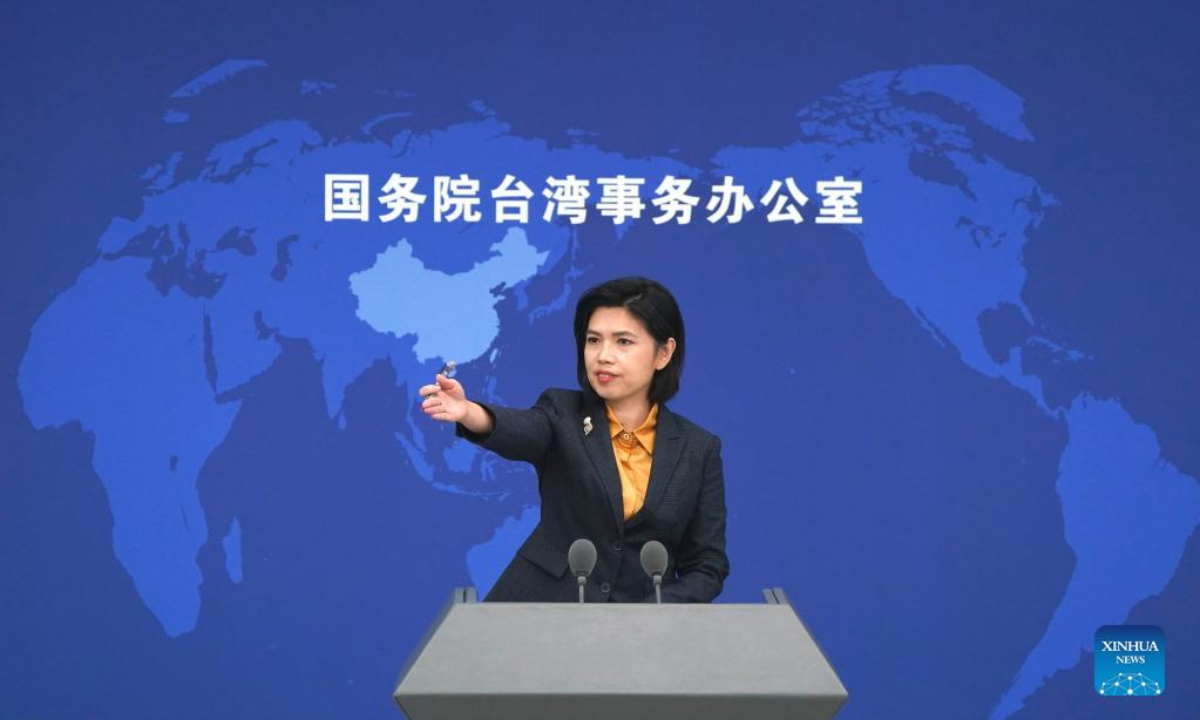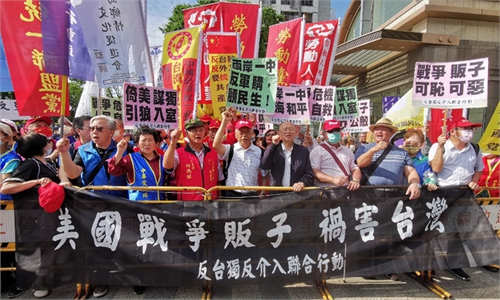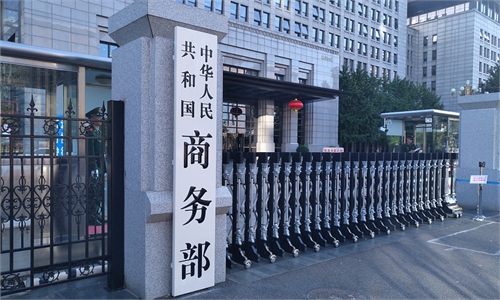Chinese mainland halts imports of Taiwan mangoes in ‘normal, legal’ step to protect biosecurity

Zhu Fenglian, a spokesperson for the State Council's Taiwan Affairs Office, attends a press conference in Beijing, capital of China, Nov 10, 2021. Photo:Xinhua
The Chinese mainland on Monday suspended imports of mangoes from the island of Taiwan, after detecting harmful pests in the fruit that pose a serious threat to the mainland's agricultural production and biological security if allowed in, a mainland official said.
While the move followed recent similar steps taken by mainland authorities and came amid rising tension across the Taiwan Straits due to provocative, separatist actions by the Democratic Progressive Party (DPP) authorities, it is a technical decision that aims to protect biological security in line with relevant laws, regulations and norms, mainland officials and experts stressed. Still, for cross-Straits economic and trade ties to further grow, peace and stability in the Taiwan Straits are necessary, they added.
In a brief statement on Monday, Zhu Fenglian, a spokesperson for the Taiwan Affairs Office of the State Council, said that since the beginning of the year, mainland customs have detected the harmful pest Planococcus minor in mangoes imported from Taiwan. If allowed into the mainland, the pest will pose a serious threat to agricultural production and ecological security in the mainland, Zhu said.
"In order to prevent risks from the source, the General Administration of Customs has decided to suspend the import of mangoes from Taiwan to the mainland starting from August 21, 2023," Zhu said in a statement, noting that the mainland has notified relevant authorities on the island and called for efforts to further improve the phytosanitary management.
"The above-mentioned measure is a normal biosecurity precautionary measure, scientific and reasonable, and it complies with relevant laws, regulations and standards of the mainland," Zhu said.
Following the announcement, many overseas media outlets tried to link the move and other similar steps to rising tension after the "transit" of Taiwan's deputy regional leader Lai Ching-te in the US. The South China Morning Post quoted the agricultural authorities on the island as calling for "technical dialogue."
"There have been relatively many events in terms of cross-Straits trade… which have sparked much speculation that links these trade moves to tension across the Straits and Lai's 'transit' in the US. However, the ban on mango imports is a purely technical issue," Wang Jianmin, a cross-Straits expert at Minnan Normal University, told the Global Times on Monday.
"While there is tension, the mainland has not taken control measures. Instead, it is strictly supervising the quarantine and safety of agricultural products, which is a correct move," Wang said.
The move came just a week after the Chinese mainland announced on August 14 anti-dumping measures on polycarbonate imports from the Taiwan region, requiring a deposit to be paid for imports, after a months-long investigation concluded that dumping of polycarbonate had harmed industries on the mainland.
After a months-long investigation, the Ministry of Commerce decided to take anti-dumping measures against imports of polycarbonate. Starting from Tuesday, import operators must provide the corresponding deposit to the mainland's customs when importing polycarbonate from the island, with a ratio ranging from 16.9 percent to 22.4 percent.
"Recent events in cross-Straits economic and trade ties are easily linked to Lai's 'transit' in the US; however, economic issues are being handled separately and have not been linked to political ties across the Straits," Tang Yonghong, a deputy director of the Taiwan Research Center at Xiamen University, told the Global Times on Monday.
Tang stressed that "good economic ties need to be based on good political ties. It is unacceptable that [the DPP authorities] continue to be hostile politically and undermine core interests on the one hand, while seeking to benefit from cross-Straits economic and trade ties on the other hand."
Chinese authorities have repeatedly voiced firm opposition to any form of official interaction between the Taiwan island and other countries and regions, including the US, which demonstrates China's resolve to safeguard national sovereignty and territorial integrity.
Over the weekend, the Chinese People's Liberation Army (PLA) launched a sudden and swift joint exercise around the island of Taiwan, the PLA's third major countermeasure operation against the collusion between "Taiwan independence" secessionist forces and external interference forces since last August.
On the economic and trade front, the mainland has offered countless favorable policy measures and platforms for businesses and products from the island to thrive in the vast mainland market, Wang said. "It is actually DPP authorities who are taking restrictive measures, which is very unfair," he said.
Such restrictive measures from the DPP authorities, coupled with their secessionist actions, not only hurt products and businesses on the island but also the regional economy as a whole, given the heavy reliance of the island's economy on the mainland, according to Tang.
"If Taiwan authorities continue to undermine its ties with the mainland, it won't be able to sign foreign trade agreements and will be further marginalized," he said.



